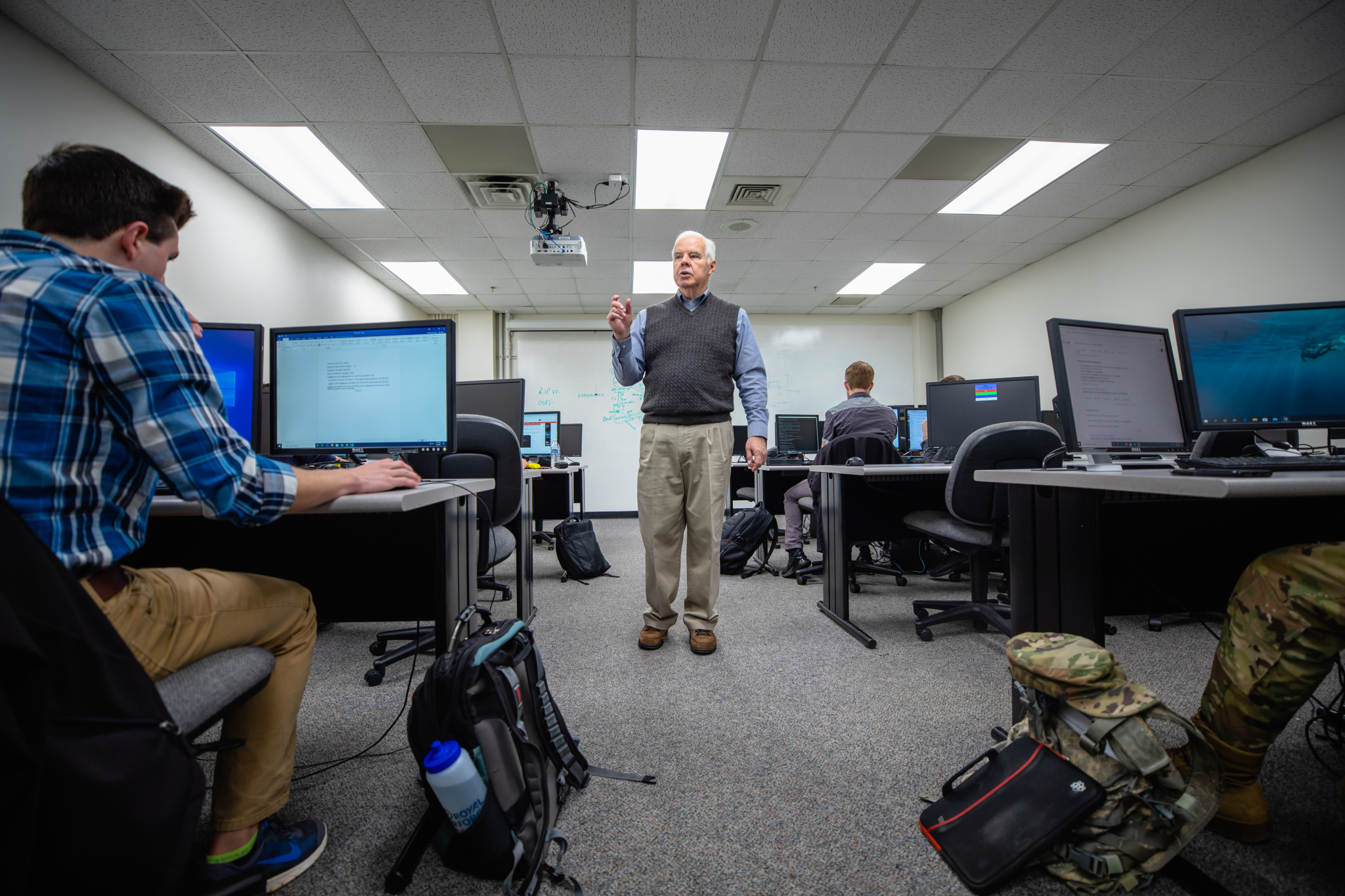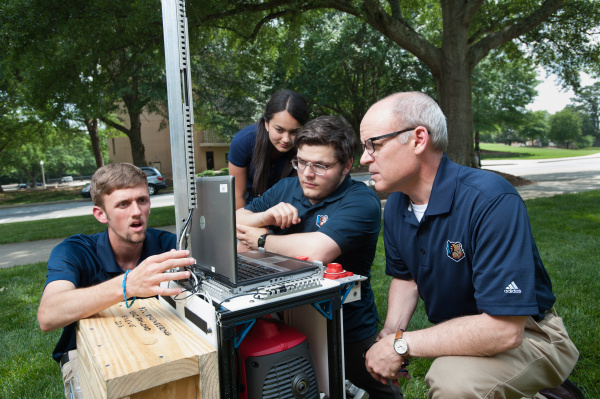Cybersecurity threats are constant and growing, affecting every aspect of life in our digital age — from government agencies to large corporations, to mom-and-pop operations and, of course, your personal devices.
In fall 2020, BJU rolled out the cybersecurity program. If you are interested in enhancing and maintaining security measures, this may be the right program of study for you.
See Also: New Programs Meet Society’s Growing Needs
What Prompted BJU to Add the Cybersecurity Major?
BJU created the cybersecurity major as a blend of the information technology and computer science programs. It provides exposure to the application element of IT and the theoretical aspects of computer science.
How Will This Program Equip Me?
Practical Skills
Computer science faculty Dr. Jordan Jueckstock explained the primary program objective. “The goal of the program is to train students to be effective in both offensive and defensive security roles,” he said. The offensive side is represented by the red team — ethical hackers. The defensive side is represented by the blue team — secure system design and administration.
Junior cybersecurity major Elisabeth Parks says she chose the major for training in ethical hacking. “(White hats) are people who are hired by companies to try to break into their company (before real hackers do),” she said.
Biblical Worldview
In this program, you will also learn about the biblical worldview and thinking behind the actions and practices involved. For example, hacking without permission is illegal, but for cybersecurity purposes, hacking is necessary to help people prevent catastrophes before they happen.
What Resources Will be Available to Me?
As a cybersecurity major, you will have access to three computer science labs in BJU’s Mack Building, with 15–20 computers in each. You will learn how to use routers and switches and can use the space to work on projects. Lab monitors can also assist you in solving complex issues in software programs.
What Cybersecurity Classes Will I Take?
Introductory Classes
The first major class you will take is CpS 110: Object-Oriented Programming I, which provides an introduction to computer science. This course is a prerequisite to CpS 391: Computer Security, which is a cybersecurity defense-oriented class. CpS 255: Penetration Testing & Ethical Hacking also requires CpS 110 as a prerequisite and equips students for the offensive side of cybersecurity.
Upper-Level Classes
As you progress through the major, you will take classes in database management systems, operating systems, cryptography and more. In these classes, you will come up with computing-based solutions to ensure security and learn to continue security operations while under the threat of hacking.
What are Recommended Program Add-Ons?
Certifications
In addition to coursework, you may take certification exams that provide greater career opportunities in cybersecurity. The Computing Technology Industry Association, CompTIA, facilitates several tests, including a core security knowledge test, Security+, as well as three tests specific to cybersecurity: CySA+, PenTest+ and CASP+. CpS 391 prepares students for the Security+ exam, and higher-level cybersecurity classes are helpful in preparing for the cybersecurity-specific exams.
Computer science faculty Dr. Alan Hughes said, “These certifications add about six to 10% to your original salary.”
Minors
BJU offers some minors that are especially applicable to the cybersecurity field. Hughes recommends criminal justice, business or communication. “There is a lot of opportunity for cybersecurity professionals to train other people, and the skills you get in a communication minor would help them be able to do that better,” he said.
Student Work Experience
Parks works in BJU’s Technology Resource Center, where she has helped fellow students with hacked emails and other issues that have prompted problem solving. This is one campus job particularly suited to cybersecurity students.
Where do Faculty Envision this Program Heading?
Competitions
In its second year, the cybersecurity program is still developing as a major. Faculty plan for students to eventually participate in cybersecurity competitions.
One type of competition is capture the flags (CTF). “(These competitions) are basically gamified hacking scenarios,” Jueckstock said. “Event organizers set up a bunch of deliberately vulnerable systems, … so you have to actually go through the process of encountering something new you have never seen before, reverse engineering and figure out what is vulnerable about it.”
BJU is currently recruiting students to form a CTF team and train for intercollegiate competition.
Preparation For the Real World
Jueckstock recognizes the main objective of cybersecurity: “Security really is a question of trust and control — who can I trust, who controls my stuff (and) how much control can I give to someone else without losing control of my stuff?” he said.
Said Parks: “I think (the major applies to) anybody who is interested in helping protect and learn how to protect not just others’ computers and devices but their own.” She also said that as a cybersecurity major, you will develop community with fellow students and professors while collaborating on class projects.
Jueckstock hones in on the cybersecurity program’s purpose for you individually. “The point of the cybersecurity program is to develop people’s technical skills … (so that students) can be useful in the field when they first try to get jobs,” he said. The cybersecurity program equips you with the skills you need to protect and serve clients.
For more information about the cybersecurity program or to apply online, visit BJU’s cybersecurity program page.











